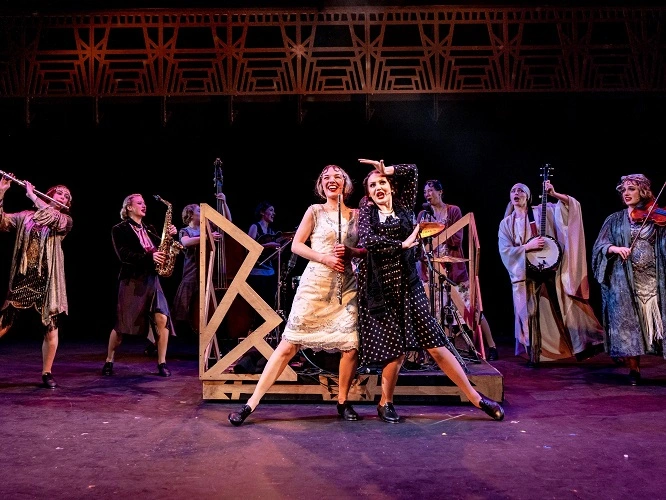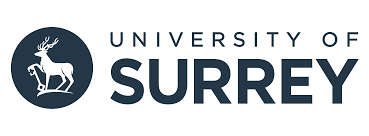
Actor Musician
Overview
Actor Musician BA (Hons) course develops student's talents as both actors and musicians. This exceptional course trains in acting and musical performance to make their skills excel in a variety of theatrical roles. With this degree programme, students will be capable of handling both spoken and sung parts, making them highly sought after in the entertainment industry.
Objectives
- Developing exceptional acting and musicianship skills.
- Understanding musical theatre genres.
- Gaining practical experience through performance and industry collaborations.
- Preparing for a successful career in musical theatre or opera.
Prerequisites
- Strong foundation in both acting and music.
- Demonstrated talent and passion for performing arts.
- Willingness to commit to rigorous training and practice.
Curriculum Outline
- Acting techniques (e.g., Stanislavski, Meisner, Michael Chekhov)
- Music theory and practical musicianship
- Ensemble Musicianship (performance)
- Solo Musicianship (performance)
- Musical theatre performance
- Vocal technique and development
- Instrumental proficiency
- Dance and movement training
- Practical-based training (e.g., musical, classical, & modern text)
- Auditioning techniques
- Theatre history and theory
- Performance opportunities (e.g., musicals, operas, concerts)
- Career Case Study
- Reflective Journal
- Personal Business Plan
- Presentation - Research Project
- Digital Portfolio
Teaching Method
- Independent study
- Practical sessions
- Workshops
- Lectures
- Rehearsals and performances
- Seminars
- Practical workshops and exercises
- Group discussions and critiques
- Individual coaching and mentoring
- Guest lectures from industry professionals
Modules
- Storytelling
- Greek ensemble
- Classical texts
- Modern text
- Musical text
- Contemporary texts
- Musical texts
- Ensemble Musicianship
- Practical Musicianship
- Digital Media / MacLab
- 1-2-1 Instrumental Tuition
- Practical Voice
- Applied Voice
- Group Technical Singing
- Group Instrumental Technical Workshops
- Singing Tutorial
- Movement Fundamentals
- Movement Expression
- Ballet
- Jazz
- Tap
- Applied Voice
- Practical Voice
- Professional development
- Industry practice
- Collaborative principles
- Singing and music tutorials
- Technical dance classes
- Voice maintenance
- Screen acting
- Radio
- Relevant legal and regulatory frameworks
- Financial planning
- Marketing, social media, and sustainability strategies
- Sourcing private and public funding
Assessment Methods
- Practical assessments (e.g., musical performances, scene work)
- Coursework assessment (e.g., music theory and practical musicianship)
- Written assignments (e.g., character analysis, script breakdowns)
- Group projects (e.g., collaborative musical productions)
- Final examinations (e.g., comprehensive assessments)
Course Duration
This programme may vary depending on the institutions and countries, but the general standard options in the UK are:
- 03 years full-time.
Facilities
- Well-equipped theatre spaces and rehearsal studios
- Music practice rooms and recording studios
- Dance studios
- Libraries with extensive resources on acting, music, and performing arts
- Access to industry professionals and guest lecturers
Career Pathways
- Actor-musician in musical theatre, opera, or other performing arts
- Vocal coach or music teacher
- Theatre director or producer
- Casting director
- Dramaturg
- Scriptwriter
- Stage manager
- Entertainment agent
- Arts administrator
Fees and Fundings
- Tuition fees between £20,000-£25,000 per year.
- Scholarships, grants, and bursaries may be available to help offset costs.
- Part-time work or student loans can also be considered.
Entry Requirements
- GPA of 5 out of 5 or 80% to apply.
- IELTS academic required.
- Mathematics 60-69 required.
- Can demonstrate exceptional talent.
- Satisfy the panel's ability.
- Able to complete the course successfully.
Field Work and Internships
- Opportunities for practical experience through internships, workshops, and community theatre productions.
- Networking with industry professionals can lead to future career opportunities.
Certifications
While not always required, certifications can demonstrate specialised skills and enhance career prospects. Examples include:
- Certified Acting Teacher (CAT)
- Certified Theatre Director (CTD)
- Certified Casting Director (CCD)
- Certified Stage Manager (CSM)
- Certified Dramaturg (CD)
Intakes
Typically, it takes twice a year (fall and spring), but may vary like:
- Fall (September/October)
- Spring (January/February)
- Summer (May/June)
Student Testimony
"My time training at GSA has been truly incredible, and the Actor-Musician course has been perfect!" Says - "Rose, Actor-Musician BA (Hons) at University of Surrey"
Frequently asked questions
Below are the top opportunities for practical experience and performance:
- Internships
- Workshops
- Community theatre productions
- Performance showcases

